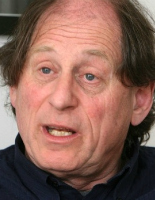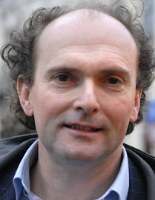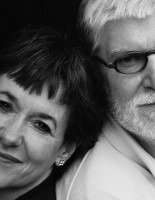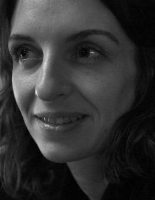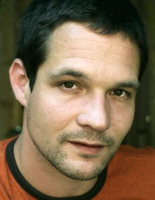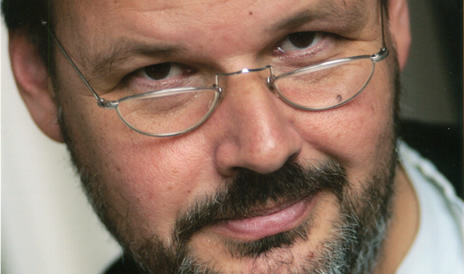
Douwe Draaisma
- Speak, Memory
Date: Wed 31 August Time: 06.00 pm Venue: The Bookworm Beijing - Zhang Xiaohong in conversation with Douwe Draaisma
Date: Sun 4 September Time: 11.00 am Venue: BIBF
Life and work
Douwe Draaisma (b. 1953) is Professor of the Theory and History of Psychology at the University of Groningen. His successful Metaphors of Memory (1995) has been translated into many languages and was awarded the Heymans Prize by the Dutch Institute of Psychologists. With his bestselling Why Life Speeds Up As You Get Older (2001), which has sold more than 100,000 copies, Draaisma won four national prizes and was shortlisted for the 2005 Aventis Prize, world’s most prestigious award for popular science writing. Disturbances of the Mind (2006) has been published in several languages. The Nostalgia Factory (2008) sold 50,000 copies and was translated into German, Italian and Polish.
Waarom het leven sneller gaat als je ouder wordt
Autobiographical memory is not a common topic of psychology, which feels ill at ease with a subject not readily open to scientific generalisation. But for that very reason it is highly popular with the general public. The associated problems are both concrete and intriguing. Why do we keep blushing years after a past humiliation? Why does life seem to pass more quickly with age, and why do dying people sometimes see scenes from their youth flash by in their mind’s eye? Each of us has wondered about these questions at some time, but psychologists prefer to steer clear of them for fear of being thought quacks. How mistaken they are is revealed by psychologist Douwe Draaisma in Why Life Speeds Up with Age. In a kaleidoscopic series of reflections, he shows how these very questions have now been opened up to scientific analysis while losing nothing of the puzzling character with which the founders of psychology had to wrestle. In short, this book is a form of homage to the nineteenth-century men who treated psychology as a life science. In that kind of science, general laws, Draaisma keeps insisting, must always enter into an uncomfortable alliance with the uncertain approach of the arts.
De metaforenmachine
How has mankind imagined memory over the course of history? In De metaforenmachine psychologist and philosopher Douwe Draaisma describes the history of these metaphors for memory. Time and again philosophers and researchers have used the latest achievements of technology as an aid to visualise the unfathomable functioning of the brain. In the long term none of these metaphors has proved satisfactory and old metaphors have occasionally returned in a new form. But all too often psychologists resorting to such a step have also returned to the discredited formulation of problems of former times. Draaisma’s ironic conclusion is that the psychology of memory itself seems to suffer from a remarkable form of amnesia. Why is psychology so fond of metaphors? Possibly, according to Draaisma, because an objective description of the mind is impossible. Even if brain research managed to explain the workings of consciousness, it would come no further than an external description. What happens when this mechanism says ‘I’ remains inescapably hidden to science, with its demand for demonstrable truth. Draaisma ends this fascinating, profound and eminently readable book by concluding that even the hardest of sciences is forced back on suggestive images in order to describe this extra facet.
De heimweefabriek
In this book Draaisma writes beautifully and evocatively, explaining neurological phenomena in ways that prompt recognition. His writing is reminiscent of Oliver Sacks and it is no coincidence that the book includes an interview with the famous British neurologist, a rather melancholy conversation about Sacks’ parents and his childhood. As he approached sixty, Sacks was overwhelmed by a flood of early memories formerly lost to him; these became the basis for his autobiography. Draaisma draws upon a multitude of examples to illustrate this ‘reminiscence effect’, described as early as in Dickens’ A Tale of Two Cities, where old Mr Lorry suddenly starts to dwell on his youth. Clearly our memories can sometimes awaken perception of events apparently long forgotten.
Translation in Chinese
- Draaisma, Douwe. [Weishenme suizhe nianling de zengzhang shijian guode yuelaiyuekuai] Chinese / translated from English by Zhaoxia ZHANG. Jinan: Shandong Education Press, 2006. ISBN: 9787532854622.
- Draaisma, Douwe. [Jiyi de yingyu] Chinese / translated from English by Xiufeng QIAO. Guangzhou: Flower City Publishing House, 2009. ISBN: 9787536057531.
- Draaisma, Douwe. [(De heimweefabriek)] Chinese. Guangzhou: Flower City Publishing House, in preparation since 2009.
